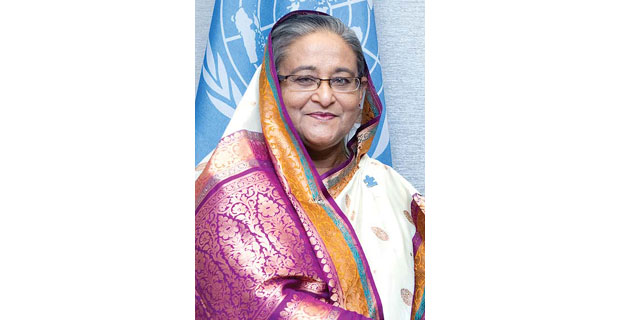PM HASINA SEEKS UNIVERSAL PEACE
Bangabandhu had also called for upholding a policy of non-alignment and the establishment of friendly relations through ending warfare and arms races to maintain world peace, she noted. PM Sheikh Hasina said the Father of the Nation, in his book “Amar Dekha Naya Chin”, explained his participation in the Asia-Pacific Peace Conference held in Beijing in 1952 by saying: “We are willing to join the peace conference of those who want peace in the world today. We agree to raise thousands of voices with all those fighting for peace, be it Russia, America, Britain, or China—we want peace.” She mentioned that Bangabandhu was nominated for the Julio Curie Medal in a declaration in Helsinki on October 10, 1972, for his outstanding contribution to world peace by establishing the rights of the oppressed people in the country.
Dhaka hosted the two-day international conference on the occasion of the birth centenary of Father of the Nation and the Golden Jubilee of the country’s Independence to promote a culture of peace and tolerance.
She also said the Father of the Nation’s philosophy of peace was a far-reaching one and an avenue of lasting peace. “Bangabandhu has proved that freedom from all shackles of deprivation-inequality-exploitation eventually from dependency and achieving prosperity by ending hunger and poverty may construct this path.”
The Prime Minister also mentioned that her government signed a peace treaty ending the bloody conflict with the hill tribes of the Chittagong Hill Tracts in 1997. Bangladesh, during the Awami League regime, first proposed a resolution on the declaration and program of action of a “culture of peace” at the United Nations, which was adopted on September 13, 1999. Accordingly, the UN declared 2000 as the International Year of the Culture of Peace and 2001-2010 as an International Decade for a Culture of Peace and Non-Violence, she mentioned.











Comments.